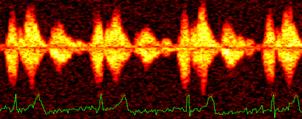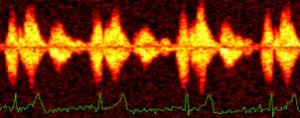EchoSense Studies Transthoracic Parametric Doppler to Detect PH in SSc
Written by |

Courtesy of EchoSense
Two clinical trials from EchoSense Ltd. are directed toward using lung Doppler signals (LDS) to predict the risk for pulmonary hypertension in patients with systemic sclerosis (SSc). The trials will evaluate the feasibility of identifying pulmonary vessels characteristics using LDS and EchoSense’s processing package known as transthoracic parametric Doppler (TPD).
Patients with SSc are susceptible to pulmonary hypertension due to excessive fibrosis and occlusion of the pulmonary vessels or stiffening of the left ventricle. Since Doppler can detect blood flow, it is possible to detect occlusions and back pressure non-invasively, potentially providing a new means by which pulmonary hypertension can be reliably detected in SSc patients.
[adrotate group=”4″]
“Evaluating Lung Doppler Signals in Patients With Systemic Sclerosis (SSc)” and “Evaluation of Pulmonary Doppler Signals in Patients With Systemic Sclerosis (SSc)” are both interventional, open-label studies with the primary purpose of diagnoses. The number of patients correctly identified using TPD, determined to be correct by right heart catheterization, is the primary outcome measure of the study. All four pulmonary hypertension group severities will be used, and 20 SSc patients are expected to enroll.
[adrotate group=”3″]
The studies are not yet recruiting, and recruiting locations will be in Israel on the Rambam Health Care Campus. First started in September 2014, the study is expected to be completed in December 2015.
Doppler echocardiography has been investigated previously for diagnosing pulmonary hypertension in SSc patients, but EchoSense’s trials are unique in their use of TPD. This algorithm may prove useful in establishing a reliable, non-invasive way of detecting pulmonary hypertension.




